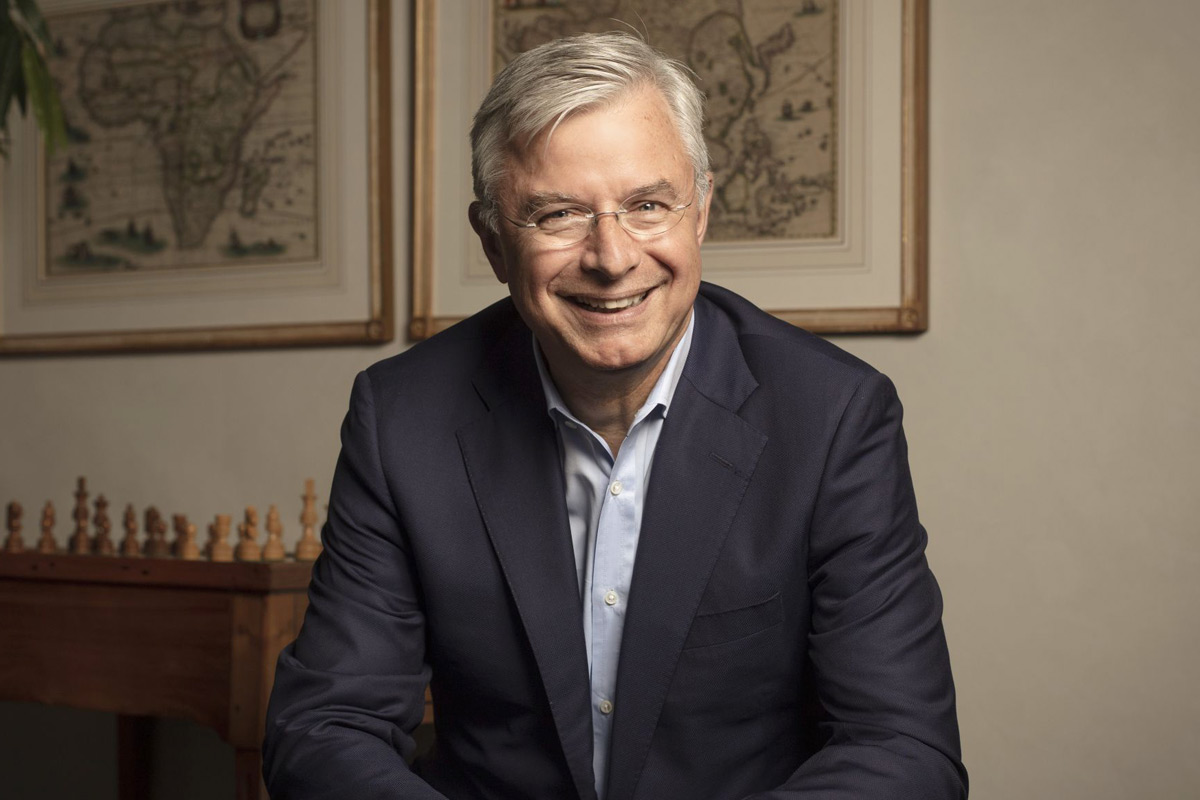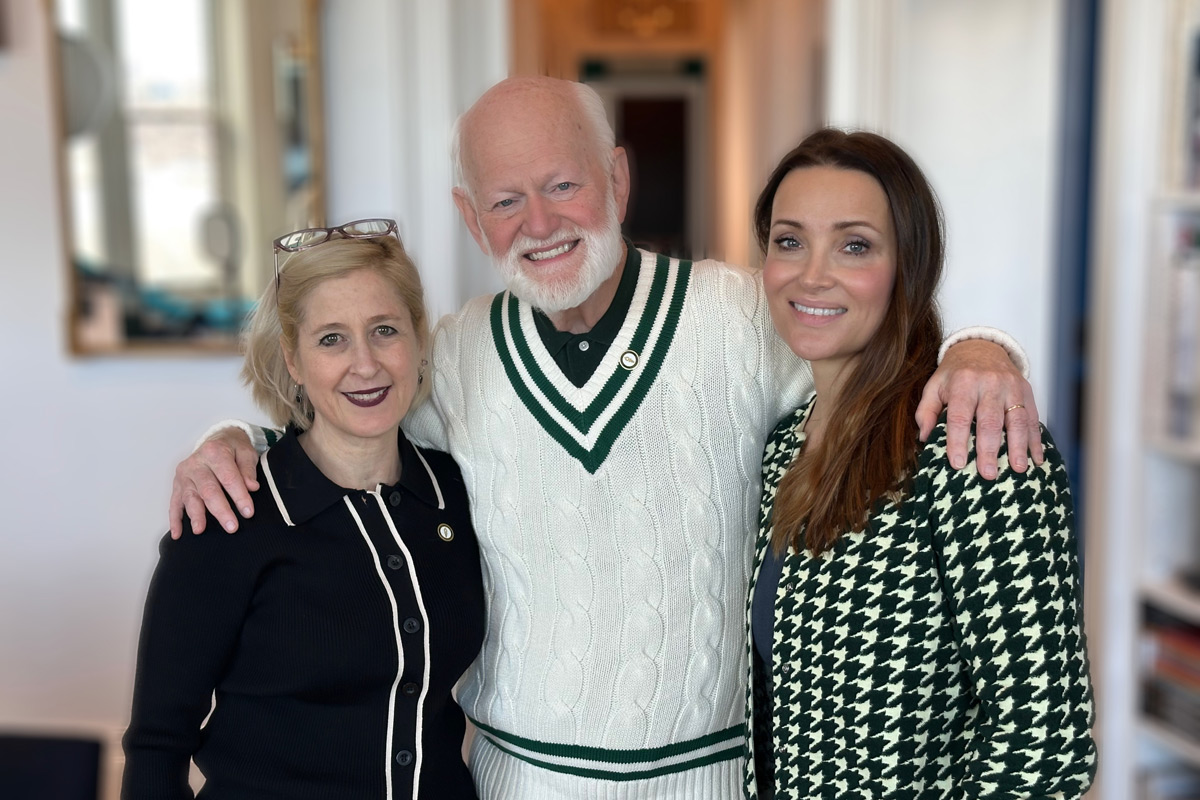By Alex Lazarus. Interview conducted a part of Leading with Influence Series with Global Leaders in Law.
The Myth of the Superhero Leader
Hubert Joly began with striking honesty: “So much of what I learned at business school, earlier in my career, or even during my early executive years, was either wrong, outdated, or incomplete.”
His words captured immediate attention.
For decades, the all-knowing, top-down CEO was idolised. However, Joly’s remarkable turnaround of Best Buy—initially dubbed “crazy and suicidal” by critics—demonstrates that a more human-centred approach works effectively.
He described this approach as “unleashing human magic,” explaining, “That’s the job of leadership now.”
Traditional, hierarchical leadership no longer suits today’s rapidly evolving work environment. Leaders at all levels must now inspire and motivate through shared values, purpose, and genuine connection. As Joly emphasised, “People don’t like being told what to do. They want to feel part of something meaningful and be recognised as individuals.”
Tessa Schwartz echoed this view, highlighting the power of inclusivity: “Leadership isn’t just about one person at the top—it’s about the team. When you include diverse voices, real influence emerges because each person brings a unique perspective.”
Blending Purpose and Performance
Both speakers reinforced that a strong sense of purpose is entirely compatible with achieving excellent business outcomes.
Joly’s experience at Best Buy exemplifies this. By prioritising employees and cultivating a clear, noble purpose, he achieved remarkable results. Under his leadership, the company significantly rebounded through increased employee engagement and innovative problem-solving.
“The purpose of business,” Joly stated, “is not merely to make money, but to serve the common good. Profits should be viewed as an outcome, not the sole reason for existence.”
Schwartz offered a complementary perspective from the legal profession—a field notorious for demanding schedules—pointing out that treating team members as whole individuals, rather than merely task-focused workers, yields better outcomes. “If associates feel valued and heard, they’ll bring their best selves to work. That engagement ultimately benefits our clients and the entire organisation.”
Joly also shared a compelling example from Best Buy, describing how one store manager shifted the entire team’s dynamic by simply asking employees: “What is your dream at Best Buy or outside of Best Buy? Write it down. My goal as your leader is to help you achieve your dream.” This approach is markedly different from traditional performance-focused reviews and highlights a genuine investment in individual aspirations.
Embracing Diverse Perspectives
Both Tessa and Hubert agreed that true influence expands when leaders engage the full spectrum of voices, including those traditionally marginalised in decision-making. Diversity, they noted, extends beyond gender, ethnicity, or age—it involves actively welcoming differing viewpoints.
Schwartz warned against echo chambers: “If the same three people consistently agree, fresh insights get lost. Introducing new voices—especially from those who see challenges differently—helps prevent blind spots.”
Caring for the Whole Person
An essential theme of our discussion was the recognition of employees as complete individuals, not just workers fulfilling roles. Joly highlighted the importance of empathy and flexibility, especially during challenging times: “Leaders today must lead with all their faculties—head, heart, ears, and eyes. Paying real attention to people’s needs and feelings is crucial.”
Schwartz reinforced this, noting, “Everyone in the organisation—support staff, front-line workers, new hires—matters. Looking after their well-being encourages greater creativity and energy in their work.”
Top Leadership Tips from Tessa Schwartz and Hubert Joly
Lead with Purpose
Clarify your team’s or organisation’s purpose beyond profit. A strong purpose inspires wholehearted contribution.
Recognise the Whole Person
Understand employees balance personal and professional responsibilities. Be empathetic and flexible to help manage workloads and life demands.
Invite Diverse Voices
Proactively seek different perspectives and experiences. A broad range of input fosters better decisions and genuine inclusivity.
Encourage Authentic Connections
Get to know people beyond job titles. Understand their aspirations and interests, showing genuine curiosity and support.
Foster a Culture of Safety and Support
Maintain zero tolerance for toxic behaviour. Provide clear pathways for raising concerns, taking swift, fair action when necessary.
Model Self-Care and Well-being
Prioritise your own well-being and encourage your team to avoid burnout. Allow breaks, set realistic expectations, and permit guilt-free pauses.
Build Influence Through Trust, Not Fear
Empower your team with respect, information, resources, and autonomy, driving engagement and improved outcomes.
Leading with influence means staying grounded in your purpose, nurturing individual growth, and genuinely caring about people. As Tessa Schwartz and Hubert Joly show us, when leaders prioritise empathy, embrace diverse perspectives, and truly support their teams, organisations don’t just perform—they thrive. And perhaps most importantly, they become places where people genuinely want to be.









